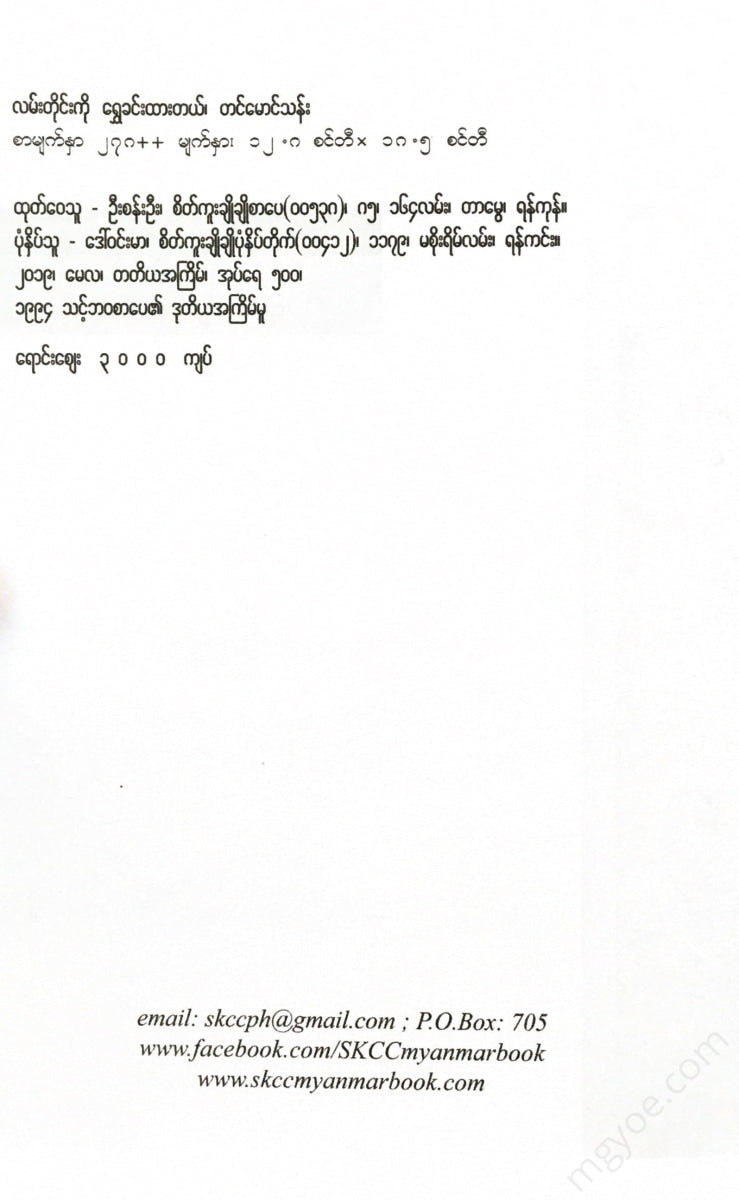စိတ်ကူးချိုချိုစာပေ
Tin Maung Than - Every road is paved with gold
Tin Maung Than - Every road is paved with gold
Couldn't load pickup availability
Starting with a humble beginning after the devastation of the Korean War, Kim Woo-chun built one of the world’s largest corporations. As the founder and chairman of Daewoo, Kim is a man of vision and drive. That vision and drive have transformed East Asia into a powerful hub of growing economies. He has worked to turn struggling domestic companies into profitable ones. An undisputed international entrepreneur, Kim has found success even in marginalized markets like Iran. His relentless drive has created a group of 22 major companies spanning everything from electronics and heavy industry to hotels and restaurants. Chairman Kim said:
"I can get money everywhere"
Kim, 55, a professorial hard worker, is on the verge of reaching a global scale. He spends more than six months a year traveling the world looking for work. He exports Korean cars to Czechoslovakia (which was still in the process of breaking up at the time of writing). He makes video cassette recorders in Northern Ireland. He owns a microchip design and manufacturing company in California’s Silicon Valley. Kim is a household name in the Western world. But Americans are surrounded by his products. Pontiac Lehman cars, Caterpillar forklifts, parts for Boeing jets, and Leading Edge computers. In 1991, the Daewoo Group had sales of $25 billion, which is no wonder. That figure is more than double that of Xerox , Eastman Kodak , Better than RJR Nabisco .
Kim shows why economic power is shifting from the West to Asia. This shift is beneficial to all countries. He is the Andrew Carnegie (or Rockefeller) of Asia. He is a man of extraordinary spirit, both in self-sacrifice and ingenuity. Everyone can learn a lot from Kim. Especially his unique skill in getting people to work.
This best-selling book in Korean was originally a collection of short essays on worldviews addressed to the youth of his country. It has been expanded. It has been adapted. In Korea, audiences have responded to Kim in the same way that Chrysler Corporation Chairman Lee Iacocca’s influential book was received in the United States. Kim’s intellectual outlook is more intense. He sees work as more exciting than play. He doesn’t want to see people waste money on pleasure. In any case, his neo-Confucianism has been key to transforming South Korea into an industrial powerhouse. And it has been instrumental in other East Asian economic successes.
His book is much more than a moral sermon from a highly successful businessman. Part of the reason for this is his heroic practicality. And Kim had a knack for turning problems into opportunities. He wrote this book late into the night in the spring of 1989, when he was dealing with the strike at the Lower Podu shipyard in the southern Korean peninsula.
Kim, a bold venture into the Third World, won a construction contract worth more than $10 billion in Libya. He began building railroads in Iran during the height of the war with Iraq, he said.
“When you go somewhere you have to be more careful about everything, so you don't really have to be afraid anymore.”
Moreover, when choosing a project, he only chooses projects that will benefit the people of that country. Projects that will change the country. Whether the new government continues the project or not is a matter of judgment for Kim, as well as a matter of economic judgment.
Kim was not motivated by greed. He was wealthy, having founded the 45th largest corporation in the world. But he donated most of that wealth to medical treatment, basic scientific research, and education. He once said:
“I don’t care about money, because I can find it anytime,” Kim said, adding that he was partly motivated by the need to create a large-scale enterprise that would lift South Korea out of poverty. In his book, Kim spoke passionately about the satisfaction he derived from achieving success. He said:
"I didn't work like a fool to earn a little money."
Again, he said, "It's impossible to find happiness in the kind of work that everyone talks about."
Kim has taken on the role of the only person like him in the Korean business world.























